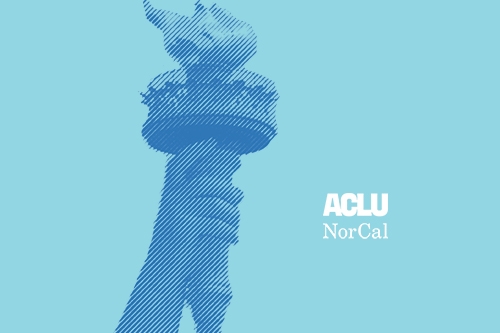Article Media

San Francisco – The American Civil Liberties Union of Northern California (ACLU-NC) and The San Francisco Bay Guardian (The Guardian) filed a preliminary injunction motion today, asking the court to order the Drug Enforcement Administration (DEA) to disclose records regarding the worldwide scramble for execution drugs by state prison officials. The ACLU of Northern California and The Guardian filed a federal lawsuit on Friday, April 22, 2011, to enforce a request for records under the Freedom of Information Act (FOIA), which the DEA had ignored for nearly four months. The suit was filed after Arizona and Nebraska set execution dates intending to use imported drugs of questionable legality and quality.
"The DEA has already acknowledged that the public has an urgent need to view records regarding states' efforts to import execution drugs and the role of federal officials in that process," said Linda Lye, staff attorney with the ACLU of Northern California. "We are dismayed that for nearly four months DEA has not released a single document. The public has a right to these records before imported drugs that may have been illegally acquired are used to execute another inmate."
On Friday, April 22, days after Arizona and Nebraska scheduled execution dates – apparently intending to use imported controlled substances of questionable legality and quality – the ACLU of Northern California and The Guardian filed suit to enforce the FOIA request in the Federal District Court for the Northern District of California. Attempts to resolve the matter with DEA informally failed, and the ACLU of Northern California and The Guardian today filed emergency papers seeking a preliminary injunction that would require DEA to provide a complete response to the FOIA request before the executions occur.
"State and federal officials must follow the law and be accountable to the public, especially when it comes to government conduct as important as an execution," said Natasha Minsker, Death Penalty Policy Director for the ACLU of Northern California. "The more we learn about the conduct of state and federal officials in the worldwide scramble for execution drugs, the more we see that corners are being cut, laws are being broken, and enormous amounts of taxpayer money are being wasted. As this story unravels, it shows once again that public safety will be better served when we replace the death penalty with life without possibility of parole."
Background
On January 4, 2011, the ACLU of Northern California and The Guardian submitted FOIA requests to three federal agencies seeking records related to the federal government's role in assisting – or failing to oversee – efforts by states to acquire controlled substances from outside the United States to carry out executions. The requests, submitted to the DEA, the Food and Drug Administration (FDA), and US Customs and Border Patrol (CBP), sought documents that would reveal whether state officials violated any laws in the states' scramble to acquire execution drugs and the role of federal agents in the process.
The ACLU of Northern California and The Guardian sought these records after public records disclosed by the California Department of Corrections and Rehabilitation (CDCR) revealed that California prison officials engaged in a worldwide "secret mission" to acquire sodium thiopental, a controlled substance used in California's execution process that is no longer legally available in the U.S. The records from the CDCR and other state prisons eventually revealed that six states imported sodium thiopental from Dream Pharma, a drug distributor that operates out of the back of a driving school in the United Kingdom. Records also revealed that two other states imported a controlled substance purporting to be sodium thiopental from an Indian Company that states publicly it is not authorized to import drugs into the U.S.
The DEA granted the ACLU of Northern California and The Guardian expedited processing of the FOIA request submitted in January. In so doing, the DEA acknowledged that the records relate to an issue of significant public importance and that the public had an urgent need for the information contained in the records. Yet, for nearly four months, the DEA failed to produce any records and failed to even provide a timeline for when records would be produced.
In the interim, based on questions surrounding the drug's legality, the DEA has taken possession of the sodium thiopental imported from Dream Pharma from five states. This includes Georgia, Tennessee, and South Carolina, which imported the controlled substance directly from the United Kingdom. DEA also took possession of drugs from and Kentucky and Alabama, which acquired the illegal drug from other states. Only Arizona, California, and Arkansas continue to maintain possession of drugs imported from Dream Pharma, while Nebraska and South Dakota continue to possess drugs imported from India.
Learn more:
Documents previously released by the CDCR, FDA and CBP
